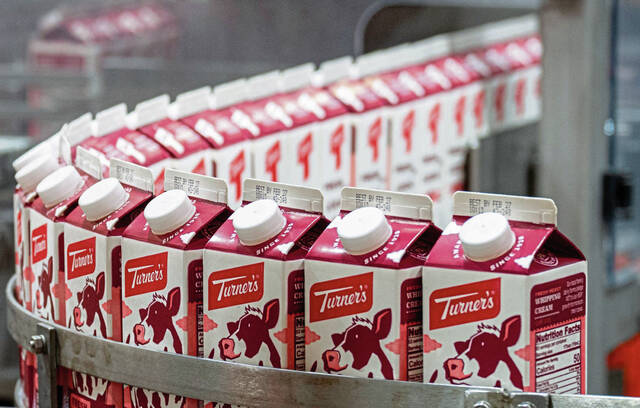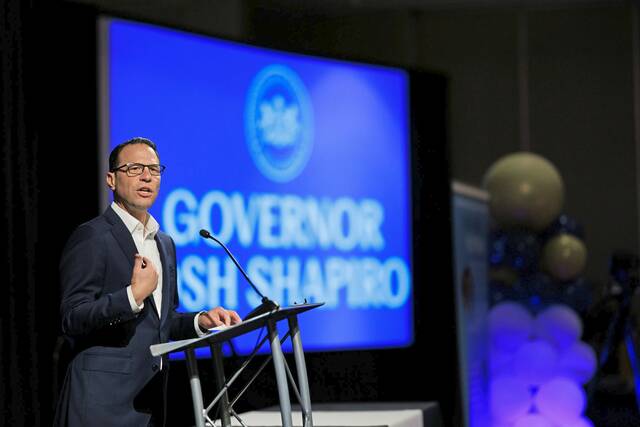The state House has again passed a bill that would give unemployment benefits to striking workers in Pennsylvania, a wedge issue that has seen effectively no movement over the past two years.
The bill cleared the House of Representatives on Tuesday on a 106-to-97 vote, with all Democrats and four Republicans in favor — the same vote margin an identical bill had gotten two years ago during the last legislative session
The bill stands no more chance of making it to Gov. Josh Shapiro’s desk this time around, given that the Republican-majority state Senate has shown no interest in the matter.
Quitting a job voluntarily typically makes a person ineligible to receive unemployment compensation, which is paid out of a trust fund that employers and employees pay into with every paycheck. The bill would amend the state’s unemployment benefits law to stipulate that striking workers are not considered to have voluntarily quit.
The bill would also remove existing language stating that workers who are out of work due to a labor dispute are only eligible for benefits if they aren’t members of an organization participating in the dispute and have no direct interest in the outcome — a clause which effectively locks union members out of unemployment pay during strike-induced shutdowns.
“Going on strike is not the same as quitting your job,” said Rep. Elizabeth Fiedler, D-Philadelphia. “The decision to strike is not made lightly.”
With no guaranteed source of income during a strike, many union members battling for better pay and working conditions are faced with an “impossible choice,” Fiedler continued, “between standing up for fair treatment and what they deserve, or putting food on the table for their family.”
Republicans anticipated the change would result in abuse.
“The whole point of unemployment [compensation] is to help folks who lose their jobs through no fault of their own, not to bankroll political stunts or bargaining tactics,” said Rep. Charity Grimm Krupa, R-Fayette County, predicting that “if this becomes law, we are going to see every contract dispute turn into a taxpayer-funded holiday.”
Rep. Mike Jones, R-York County, said his father was a lifelong Caterpillar employee who went on strike multiple times, working odd jobs like mowing lawns on installing insulation to make ends meet.
“This is a man who would never, ever cross a picket line,” Jones said, but when asked about the idea of giving striking workers unemployment pay, he said, ‘That’s a crazy idea, they would be striking all the time.’”
As noted by Rep. Aaron Bernstine, R-Lawrence County, California Gov. Gavin Newsom, a Democrat, vetoed similar legislation in 2023. In doing so, Newsom said he feared that California’s unemployment trust fund couldn’t pay for extra benefits, given that it was still deeply in debt due to the covid-induced spike in benefit claims.
How much that might be true for Pennsylvania, two years later, is uncertain. The commonwealth’s unemployment trust fund balance has rebounded from the pandemic, standing at over $1.9 billion currently, according to federal data.
Estimates from the Economic Policy Institute — a liberal-leaning research group that has supported unemployment pay during strikes — suggest that such a policy would increase unemployment payouts by only about a tenth of a percent, based on current strike rates.
Only two states — New York and New Jersey — have policies similar to the one debated in the Pennsylvania House on Tuesday, giving a relatively small sample size to judge the effects. But if those polices have increased the frequency of strikes, they’re drowned out by other factors that control when and where labor disputes happen.
California — despite Newsom’s veto — continues to see a large number of strikes, on par with New York for the frequency of labor actions relative to the unionized workforce, according to data from Cornell University.
On the other hand, New Jersey — despite offering unemployment pay to striking workers — has a relatively low rate of strikes. Pennsylvania, in fact, saw several times the number of strikes as New Jersey did over the past several years, according to Cornell data, despite the commonwealth’s unionized workforce being only about 13% larger than New Jersey’s.
Proponents suggested that giving striking workers unemployment pay might actually shorten the duration of strikes, given that employees would have additional leverage against employers who can no longer just wait for workers to cave when they run out of money.
“What I know about Americans, they will prefer to work to take care of their family and not sit around and receive a benefit,” said Rep. Jason Dawkins, D-Philadelphia, chair of the House Labor and Industry Committee. “The idea that American workers would choose to stay home or abuse a benefit when they have not abused the benefits in the past is absolutely ludicrous.”








